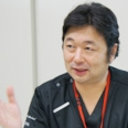Root bark extracts of Juncus effusus and Paeonia suffruticosa protect salivary gland acinar cells from apoptotic cell death induced by cis-platinum (II) diammine dichloride.
Sleutelwoorden
Abstract
Cis-platinum (II) diammine dichloride (CDDP) is a platinum-based anticancer agent, and is often used for chemotherapy for malignant tumors, albeit CDDP has serious side-effects, including xerostomia (dry mouth). Since patients with xerostomia have reduced quality of life, it is urgent and important to identify nontoxic and natural agents capable of reducing the adverse effect of chemotherapy on salivary gland function. Therefore, we commenced an institutional collaborative project in which candidates of herbal extracts were selected from more than 400 bioactive herbal products for their potential therapeutic effects not only on xerostomia, but also on oral diseases. In the present study, we report on two Chinese medical herbal extracts from the root barks of Juncus effusus and Paeonia suffruticosa. The two extracts showed a protective effect in NS-SV-Ac cells from the cytotoxicity and apoptosis caused by CDDP. The effect was dependent on the p53 pathway, protein kinase B/Akt 1 and mitochondrial apoptosis-related proteins (i.e. Bcl-2 and Bax), but was not dependent on nuclear factor κB. Notably, the apoptosis-protective effect of the extracts was not observed in adenocystic carcinoma cell lines. Although these extracts have been utilized in traditional Chinese medicine for hundreds of years, there are no reports to our knowledge, on their therapeutic effects on xerostomia. Thus, in the present study, we elucidated the potency of these herbal extracts as novel candidates for xerostomia to improve the quality of life of patients undergoing chemotherapy.



